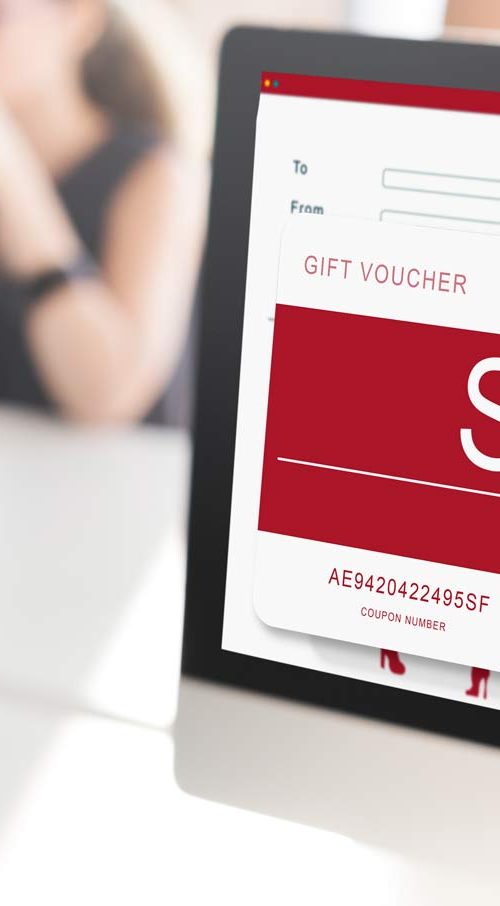Ultimate Resource for Entrepreneurs on Debt Consolidation Loan Solutions
Managing diverse forms of debt, such as credit card balances, overdraft accounts, and conventional loans, can present significant hurdles for business owners. As the accumulation of debt becomes more pronounced, financial pressure intensifies, necessitating greater resources to efficiently manage multiple payment obligations. Debt consolidation loans designed for self-employed individuals provide a strategic avenue for entrepreneurs, enabling them to amalgamate all outstanding debts into a singular loan agreement. This approach not only simplifies payments into one monthly installment but also consolidates interest rates and lenders, significantly alleviating administrative burdens while enhancing financial understanding and clarity.
The situation in 2021 revealed that UK businesses could face unsustainable debts estimated between £97 billion and £107 billion, as highlighted by TheCityUK in the Sunday Times. This staggering statistic emphasizes the urgent need for business owners to explore effective debt management strategies, ensuring smoother navigation through their financial commitments and fostering long-term viability.
In-Depth Exploration of How Business Debt Consolidation Loans Operate
A business debt consolidation loan functions as a financial vehicle that allows companies to acquire new financing with the express purpose of settling existing debts. This method effectively merges multiple financial obligations into a single, more manageable loan, thereby simplifying the repayment landscape for business owners. Engaging in debt consolidation can significantly reduce the anxiety associated with managing various payments, granting businesses the freedom to focus on operational growth and overall management of their ventures.
When considering debt consolidation loans, it is crucial to identify lenders offering competitive interest rates that fall below the aggregate rates of your current debts. This consideration is vital to ensure that the consolidation process genuinely enhances your financial health and contributes to your long-term sustainability.
Understanding the Difficulties of Repaying Government-Supported Loans
A significant portion of the estimated £38 billion in business debt is attributable to government-backed COVID-19 loan programs. More than 910,000 businesses have leveraged these financial initiatives; however, many may encounter challenges in fulfilling repayment obligations. This predicament not only creates serious issues for the businesses involved but also affects broader economic recovery efforts across the nation.
In light of these challenges, British banking institutions are being urged to expedite their strategies for effective debt recovery while enhancing personnel training to address debt disputes more proficiently. Additionally, it is imperative for business owners to critically evaluate their strategies for managing multiple debts, ensuring they maintain financial stability and operational viability.
Assessing the Viability of Business Debt Consolidation for Your Enterprise
In simple terms, consolidating business debt is indeed a feasible option.
Operating a business in today’s unpredictable economic landscape presents unique challenges. For small to medium-sized enterprises, maintaining a healthy cash flow is crucial, particularly for those engaged in business-to-business transactions or sectors characterized by seasonal fluctuations.
Unexpected expenditures can emerge, whether stemming from the necessity to acquire new equipment or facing sudden price hikes from suppliers. When businesses lack sufficient cash reserves, they may quickly find themselves inundated with debt, complicating their overall financial landscape.
Frequently, when confronted with financial adversity, businesses might view loans as an immediate solution. However, during economic downturns, some may resort to taking out multiple loans, plunging into a precarious financial situation known as the debt spiral.
The debt spiral occurs when businesses struggle to meet obligations across various fronts, causing interest to accumulate and overall debt levels to rise. Managing day-to-day operations is already a challenging task, and when compounded with the pressures of multiple debts, it can become exceedingly overwhelming. This is where business debt consolidation loans can offer substantial relief and support.
Comprehensive Overview of Effective Business Debt Consolidation Techniques
When unanticipated economic difficulties arise, UK businesses often find themselves quickly accumulating significant debt. In such situations, a business debt consolidation loan can serve as an effective remedy.
There are numerous formal and informal avenues available to assist businesses in effectively addressing their debt-related challenges.
The initial step usually involves consulting with a reputable financial advisor who can provide invaluable insights into customized debt consolidation strategies tailored to the specific needs of the business.
One potential avenue is a Company Voluntary Arrangement (CVA), which is specifically designed for limited companies grappling with debt challenges. This process mirrors an Individual Voluntary Arrangement (IVA), commonly utilized in personal bankruptcy contexts.
Through a CVA, businesses can negotiate with creditors, potentially leading to a portion of their debts being written off, thus extending repayment timelines. This arrangement grants essential breathing room for businesses to recover and reestablish their financial stability.
While opting for a reduced payoff is not mandatory, it can be beneficial, as creditors may prefer this route to ensure they receive more over time rather than risk potential liquidation.
An insolvency practitioner oversees the CVA, facilitating negotiations between the business and its creditors while allowing existing management to continue operating the business.
Diverse Strategies for Business Debt Consolidation
Business debt consolidation offers the chance to unify multiple business loans, overdrafts, and creditor obligations into one streamlined loan agreement. This method not only optimizes cash flow by consolidating payments into a single manageable monthly installment but also minimizes administrative time and costs, significantly boosting the efficiency of the repayment process.
Streamlining Business Credit Card Debt with Consolidation Solutions
For those managing various business credit cards, a practical solution lies in consolidating these debts into a more organized structure. A business debt consolidation loan presents a unique opportunity to secure more favorable lending terms, potentially reducing monthly payments and freeing up crucial capital for operational necessities.
Enhancing Cash Flow with Business Cash Advance Debt Consolidation
In certain scenarios, businesses may require immediate access to cash to sustain healthy operations. Frequently, capital is tied up in existing loans and overdrafts, hindering access to liquid assets. A business debt consolidation loan can streamline this process by amalgamating various debts into a single payment with a lower monthly obligation, thereby improving liquidity for essential business functions.
Overcoming Bad Credit Obstacles in Business Debt Consolidation
As businesses expand, they may accumulate various loans and financing sources, resulting in intricate repayment structures. This complexity can be further exacerbated by a poor credit score, making it difficult to obtain additional financing. Nevertheless, a business debt consolidation loan offers a pathway to simplify debts into one manageable loan with a single monthly payment, thereby enhancing overall financial clarity.
Small Business Debt Consolidation Loans: Essential Financial Assistance
Small businesses play a vital role in the economy but often encounter difficulties during minor fluctuations in demand or foot traffic. For these enterprises, managing multiple loans without dedicated financial personnel can be particularly daunting. A small business debt consolidation loan merges all outstanding debts into a unified loan, simplifying payment management and alleviating financial strain.
Analyzing the Advantages and Disadvantages of Business Debt Consolidation
Business consolidation loans come with their own unique benefits and drawbacks; however, many of the associated challenges can be effectively addressed and mitigated.
Advantages of Business Debt Consolidation Loans
Strategic Financial Savings via Debt Refinancing
By selecting a refinancing loan with a larger principal and extended repayment duration, your business can secure a greater total amount while maintaining comparable monthly payments. If you qualify for a lower-interest refinancing loan compared to your existing debts, you will incur less interest over time, ultimately saving your business money. Paying off a mix of current loans or substituting an older loan with a new, lower-interest option can also support improved cash flow each month.
Ensuring Operational Continuity During Financial Hardships
Successful debt consolidation can enhance cash flow and support ongoing business operations while ensuring profitability. By consolidating debts with a single lender, businesses can redirect funds that would typically go towards high-interest payments, facilitating more strategic investments in operations and growth initiatives.
Simplifying Payment Processes for Busy Entrepreneurs
For business owners focused on their operations, managing multiple repayments can feel overwhelming. With a consolidation loan, the emphasis shifts to a single monthly payment, significantly reducing administrative burdens and allowing owners to concentrate fully on running their businesses effectively.
Boosting Cash Flow through Prudent Debt Management
With business debt consolidation loans, you are likely to spend less on interest each month, allowing you to retain more cash for essential purchases and investments that drive growth and sustainability.
Improving Your Credit Score through Enhanced Financial Practices
By efficiently managing your financial obligations through a single monthly loan payment, you can build a stronger repayment history. This positive track record enhances your attractiveness to lenders and suppliers, increasing your chances of obtaining future financing and credit opportunities.
Potential Drawbacks of Business Debt Consolidation
Long-Term Interest Rate Considerations
When consolidating business debt, payments are calculated based on the initial amount owed, which includes both principal and interest. Even if you secure a lower interest rate through a business debt consolidation loan, you may end up paying more in interest over the life of the loan due to extended repayment terms.
Acknowledging the Temporary Nature of Debt Solutions
While consolidating debt can alleviate monthly payment pressures, it is essential to address the underlying financial issues within your business. Implementing a long-term strategy may be necessary to achieve enduring financial stability and sustainability.
Exploring the Fusion of Personal and Business Debt
If you are a freelancer or self-employed individual operating without a limited company, your debts are classified as personal, creating opportunities for consolidation. However, if your business operates as a limited company, those debts are legally distinct from your personal debts. Consulting with a financial advisor can help evaluate your specific situation and identify viable options for effective debt management.
Consider the example of a plumber working as a sole trader on a significant project that spans over a month, with payment delayed until 60 days post-completion.
This extended project timeline may prevent the plumber from taking on additional jobs, leading to a cash flow dilemma. During this period, necessary supplies for the job are purchased on credit, and unforeseen vehicle repairs arise, further compounding the financial strain.
Consequently, the plumber ends up managing debts from both the garage and the builder’s merchant. This scenario illustrates how personal and business debts can become intertwined, underscoring the importance of self-employed debt consolidation loans to avert financial distress.
Understanding Self-Employed Debt Consolidation Loan Mechanics
For individuals grappling with a mix of personal and business debts, a self-employed debt consolidation loan can offer significant relief. This type of loan allows you to pay off creditors and streamline repayments into a single monthly obligation at a lower interest rate than the total of your previous debts. This approach can help restore financial equilibrium, enabling you to focus on generating income rather than managing numerous administrative tasks.
When applying for debt consolidation loans, ensure that your monthly payment is lower than what you currently remit to your existing creditors; otherwise, the consolidation may fail to deliver its intended benefits.
Proven Strategies for Effective Business Debt Consolidation
To successfully consolidate business debt, whether originating from credit cards, overdrafts, or loans, businesses should seek a dedicated business consolidation loan. This financial solution consolidates all outstanding debts into one manageable loan, streamlining repayment into a single monthly payment with one interest rate and one lender, ultimately enhancing financial clarity.
Leading Business Debt Consolidation Companies to Consider
Today’s business debt consolidation companies are quite different from traditional corporate banks. While some banks offer consolidation loans, there are also specialized companies catering to a diverse range of business types, including micro-businesses and SMEs. These lenders often focus on ethical lending practices and tailor loans to align with specific business needs.
Critical Evaluation of Business Debt Consolidation Loan Rates
When assessing a business debt consolidation loan, it is vital to compare numerous options, as interest rates can vary significantly. Rates may span from slightly over 5% to as high as 36%. By exploring different lenders, you can uncover a loan that meets your requirements; even if some options carry higher rates, they may still provide the essential financial support you need promptly.
Understanding the Impact of Business Debt Consolidation on Your Company
In instances where your business debt arises from one-time occurrences, a CVA may represent the most effective route to debt relief.
Company directors can stave off liquidation and bankruptcy by adhering to the terms set forth in the business debt consolidation arrangement.
By employing this strategy, a business can aim for debt freedom within a five-year timeframe. During the CVA period, interest can be frozen, and additional charges may be suspended, making debt repayment more manageable. In certain cases, up to 75% of a business’s unsecured debt can be eliminated through a CVA.
A Creditor Voluntary Liquidation (CVL) serves as an alternative to business debt consolidation that many financial counseling agencies may recommend. In this process, parties with legal claims to company assets can identify and distribute these assets during the liquidation process.
During liquidation, the company is dissolved, and the CVL represents a resolution agreed upon by the shareholders. This stage is crucial; at this juncture, the company may be too far gone to consider a debt consolidation loan, indicating insolvency and an inability to fully repay debts.
The economic recession has, unfortunately, driven numerous UK businesses into CVL situations, a scenario that no shareholder or director wishes to confront. A liquidator is appointed to oversee the CVL business debt consolidation process.
The liquidator will convene a meeting with creditors to scrutinize the insolvency claims made by the directors, with creditors formally appointing the liquidator. The liquidator’s responsibilities in the context of business debt consolidation include converting assets into cash, investigating the conduct of company directors, assessing the company’s debts, and facilitating payments to creditors.
Discover More Resources: Trending Topics Among Our Visitors
 Buy Now Pay Later Schemes Currently Under Scrutiny
Buy Now Pay Later Schemes Currently Under Scrutiny



